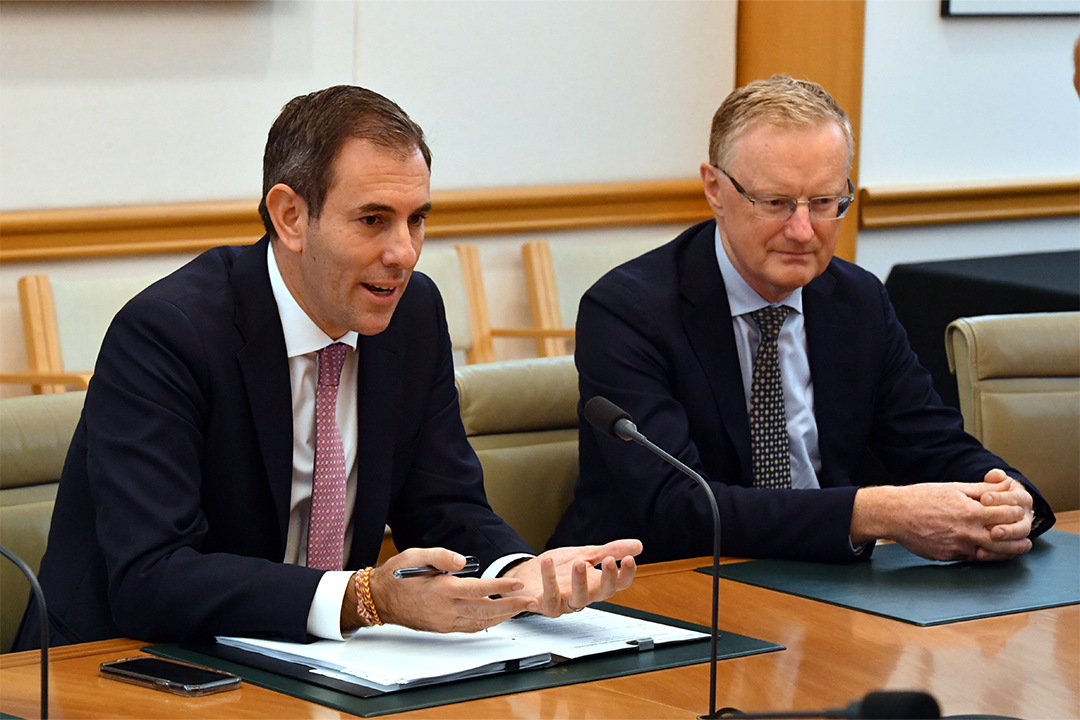

The housing sector is under enormous pressure and a slowdown in activity is likely, but the end result might mean a more sensible outcome for both house prices and the cost of building and renovating.
It could prove to be a crucial test for Dr Jim Chalmers, the new Treasurer in the Albanese government.
When you think about the headwinds for housing, it looks like a hurricane that’s not just blowing over builders and tradies but also their existing and potential customers.
So let me list these headwinds in order to paint an accurate picture:
1. Surging interest rates that are hurting builders and their customers.
2. The fastest rise in building costs in two decades, the AFR reports.
3. Talk of a house price crash with some experts tipping a 30% slide in prices!
4. A lack of workers and demands for higher wages.
5. Floods that ultimately create work but actually have stopped work as well.
6. The Covid challenges that take workers offsite and slowdown work.
This is how CommSec’s senior economist Ryan Felsman summed it up: “While there is still a large volume of work to be done, our view is that the housing cycle will lose momentum over the remainder of the year due to higher building costs, labour shortages, rising mortgage rates, affordability constraints and lower inbound migration compared to pre-Covid levels”.
In this scenario, a slower housing sector could mean lower costs for building in 2023, which could be helped by a lift in immigration numbers and more workers. And, hopefully, an end to the Ukraine war along with China completely out of lockdown should deliver lower-cost products for the building sector.
But this is the best-case scenario. The realist has to ask what happens to housing if prices crash 20% or 30%, interest rates result in a doubling of repayments for households with home loans and the US ends up in recession, resulting in a significant slowdown here?
Industry experts can see a slowdown for housing already happening. “Commencements are falling back to below where the market is actually building dwellings,” said Nigel Hatcher, an economist and the director of consultancy Macromonitor to the AFR’s Michael Bleby. “We’ll start to be eating into the backlog rather than increasing the backlog. But the backlog ... will sustain activity for some time”.
That last observation from Nigel Hatcher shows Treasurer Jim Chalmers that he can either make or break the housing sector with his October 25 Budget. And he’ll be aided and abetted by his RBA Governor Dr Phil Lowe with what he does with interest rates over the next few months.
Overnight, the US reported the biggest inflation jump in four decades, with the June reading up 9.1%. This means the Federal Reserve will maintain big 0.75% rate rises that could easily tip the US into recession. And as our RBA tends to follow the Fed with big rate rises, albeit 0.5% hikes, this isn’t good news for us.
In The Australian today, the chief economist at UBS George Tharenou warns that the RBA has to ease up on rate rises by November or we could see a real house price crash.
Until recently, the money market thought the cash rate would go from the current 1.35% to 4.5% by mid-2023 but it has pruned this back to 3.5% by March next year.
However, Tharenou says this would crush households' bank balances and set us up for a recession and a house price crash. His thinking goes like this: a 3.5% cash rate means a 6% home loan interest rate, and that would cause big problems for everyone in housing. “Interest payments across the economy next year for the household sector will be close to double from now,” Mr Tharenou said. “We have never seen such a sharp increase in repayments”. He says when you add these higher interest rates on home loans to an already spiking cost of living, the Treasurer and the RBA are courting big headwinds for the economy.
Given the big bad number the Yanks got overnight (inflation at 9.1%), watching inflation here and how the RBA responds will be crucial.
We see our June quarter CPI on July 27 and the CBA thinks the cash rate will peak this year at 2.1%. But if this inflation reading is a shocker of a US kind, then the RBA could go higher.
The Australian’s David Rogers says “UBS, Westpac and NAB expect the RBA cash rate to peak at 2.6 per cent around year-end,” but even the CBA’s call implies home loan interest rates have to go 0.75% higher, which could really stretch the budgets of a lot of Australian households.
To understand how important the housing sector is to the economy, in 2016, housing-related demand accounted for some 23.4% of GDP! This isn’t a sector that the Federal government and the central bank need to overload unless they want a recession. And I know Dr Chalmers and Dr Phil Lowe definitely don’t want that.
Both men’s reputations will be made or broken by what happens to interest rates and the growth of the economy between now and mid-2023.
George Tharenou sees a greater-than-expected sensitivity from the housing market and sentiment from the recent interest rate rises. “We’ve seen house prices start to fall immediately on a national basis,” he said. “I think this cycle is being quite pronounced and different to past downturns, when you’ve had a period of rising interest rates, which with a lag cause the housing market to roll over. This time around the housing market began to weaken quite quickly.”
This is an important warning that I hope the two doctors in charge of our economic health don’t ignore.